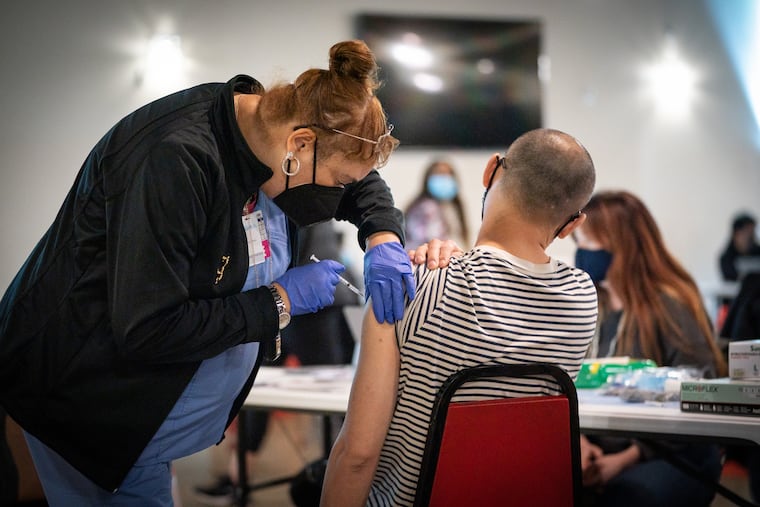COVID-19 vaccines don’t protect most organ-transplant patients, study finds
New research results are logical but concerning: a weak immune system will mount a weak immune response to COVID-19 vaccination.

People with weakened immune systems were excluded from COVID-19 vaccine clinical trials, so a big remaining question is whether their immune response to vaccination is diminished.
Early results from the first study to tackle that question are not reassuring. Of 436 organ-transplant recipients who got the first of two doses of the Moderna or Pfizer vaccines, only 17% developed detectable antibodies, the immune system’s first line of defense against disease-causing germs. In contrast, all volunteers in initial Pfizer and Moderna vaccine trials had measurable antibody responses.
Transplant patients take drugs to intentionally suppress their immune systems, which would otherwise reject their donated organs.
“Our study shows that [immunity] is unlikely for most transplant patients, and one could guess that our findings could also apply to other immunosuppresed patients, such as those with autoimmune conditions,” Johns Hopkins University surgeon Dorry Segev wrote in Medpage Today.
The Hopkins study, published Monday in the Journal of the American Medical Association, is ongoing; it is possible that the second dose will trigger an antibody response. Segev and his coauthors are also measuring T-cell and B-cell responses, which can confer long-lasting immunity even when antibodies are lacking.
But the initial results bolster what many immune-compromised patients already assumed.
» READ MORE: COVID-19 variants are evolving ‘escape’ mutations, and immune-compromised patients provide a breeding ground
“I have primary immunodeficiency, which means that not only am I more susceptible to the effects of certain viruses, but my body does not have a robust response to most vaccines,” Paige Wolf wrote in a piece for The Inquirer that urged people to get vaccinated for her sake. “Simply put: Just because I get the vaccine doesn’t mean I can’t still get COVID-19. In fact, it may not protect me very much at all.”
An estimated 3% of U.S. adults have severely weakened immune systems because of conditions such as HIV infection, or because of drugs they take for autoimmune diseases, cancer, or to prevent organ rejection.
The U.S. Centers for Disease Control and Prevention says such people can safely receive a COVID-19 vaccination, but they “should be counseled” that their immune response, and thus their protection, may be reduced.
To measure that response, the Hopkins researchers recruited kidney, liver, heart, and lung transplant patients through social media, then vaccinated them between December and February. Two to three weeks later, samples of the participants’ blood were collected and tested, revealing the poor antibody responses.
While some studies have linked immunosuppression and severe COVID-19, the Hopkins researchers have not found that transplant patients are at increased risk of dying of COVID-19.
Regardless, Segev believes it is “critically important” for immunosuppressed patients who have been vaccinated to consider antibody testing before relaxing pandemic precautions such as masking and social distancing.